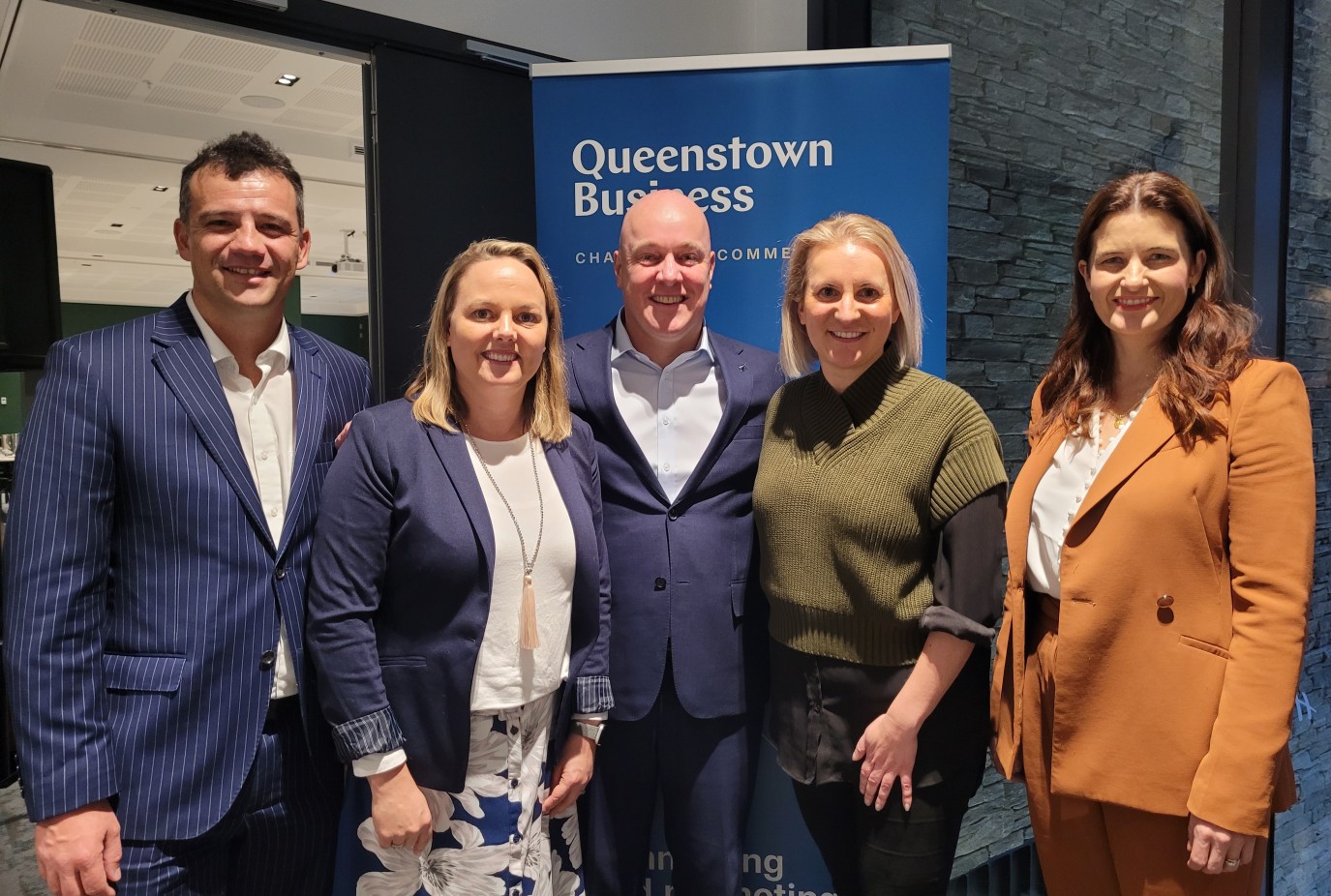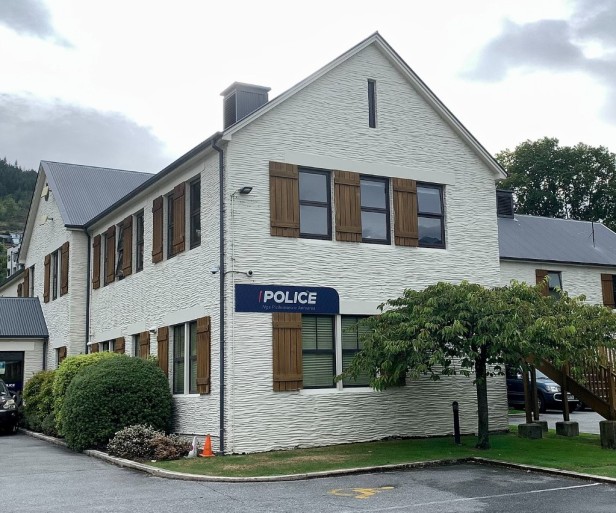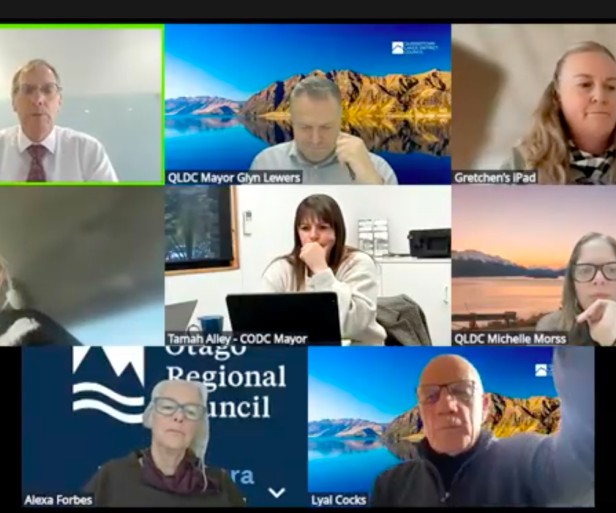National’s focus on housing

Luxon and Willis were hosted in the resort by Queenstown MP Joseph Mooney, as campaigning for the October General Election ramps up. After speaking to party faithful at the Events Centre on Thursday afternoon, they had a post-Budget session with the Chamber at the Holiday Inn Remarkables Park.
Luxon began with a quip, assuring Chamber members he was the “real Chris Luxon... not an AI generated one”, referencing National’s controversial use of AI generated images in its campaign adverts.
He then delivered a 20-minute speech outlining his party’s plans to fix New Zealand’s economy and get the country “back on track”, highlighting the impact of inflation and high interest rates, and the Government’s “spending addiction”, along with plans to boost education and policing.
But it was in the Q&A session that followed where Chamber members were able to pin them down on some of the key issues for Queenstown.
District Councillor Mat Wong, who owns iFly, asked National’s opinion on the proposed visitor levy for Queenstown-Lakes, known as a bed tax, which was on the cards before Covid-19, under a Labour Government.
Luxon deferred to finance spokesperson Willis, who said historically the party has been “pretty nervous” about a bed tax, because they were worried it would drive tourists away.
“So, I think the case for the tax needs to be establish really carefully, that you’re not going to kill the golden goose when you do it. That’s always been our concern.
“At the heart of your question is ‘what are the additional funding and financing tools a fast-growing area like Queenstown, can use?’ because you’re not going to get enough revenue from rates to build the infrastructure you need, to support the growth you need.
“We agree that’s a problem. So, what we have been working very hard on, is changes to the Infrastructure Funding and Financing Act... which was designed to give local government a few more tools for creating revenue. It’s clunky, very hard to use, very few councils have used it at all. We want to tidy it up and make it easy to use.”
That would enable councils to make property developers, for example, pay special rates to fund infrastructure.
“Around the world funding and financing schemes that allow those who have benefited from growth, to contribute more to the growth, work. And that’s what we want to see.”
Willis says National wants to say to Queenstown “grow, grow, grow... and here are some options on how you’re going to pay for it.”
National is due to announce its infrastructure and housing policy in the next few weeks.
On housing specifically, Luxon agreed with a Chamber member that Queenstown had become “the poster child” for the housing crisis.
“Let’s be clear, we’ve got a country the size of Great Britain and Japan, and houses are more expensive. That’s just insane,” he says. “We’re a country of five million people, in that land space.
“We’ve not done a good job of consenting and opening up green fields.”
Luxon says National wants to reimagine the consenting process, to reward councils for delivering on growth, while also reinstating interest deductibility for rental landlords, and restoring the Brightline test to two years.
The plan is also to get capital into the hands of community housing providers, such as Queenstown Lakes Community Housing Trust, and make it much easier for overseas investors to fund build-to-rent properties.
Willis says National housing spokesperson Chris Bishop is working on a Build-to-Rent housing Bill.
“It delivers a fast-track through the Overseas Investment [Act] regime,” Willis says. “You get an exemption on your build-to-rent housing in New Zealand, you can do it.
“I think that’s really applicable for Queenstown because there’s big money that wants to invest. It’s a great asset for them and will provide long-term housing security for people.”
Willis says QLCHT has been doing “incredible work... on the smell of an oily rag” and National wants to empower them, by diverting capital from Kainga Ora [the Government’s state house builder] and legislating to enable inclusionary zoning.
“I’m really sympathetic to [QLCHT] argument that there should be some inclusionary zoning. Ultimately it is an issue for councils, as Chris [Luxon] said, we believe in localism, but we don’t think the law should prevent you having inclusionary zoning if that’s what you want to have.”









